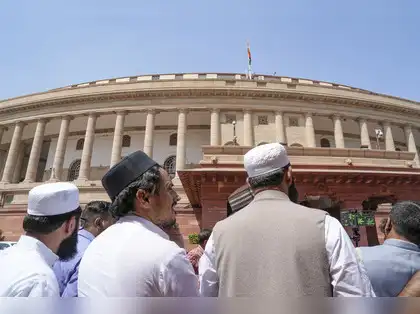On Wednesday, despite strong objections from the opposition, Union Minister Kiren Rijiju introduced the Waqf (Amendment) Bill in the Lok Sabha. A lengthy discussion lasting eight hours is set to happen on this bill. Additionally, the Mussalman Wakf (Repeal) Bill, 2024 was brought forward for consideration and approval. This bill was first presented last August and was examined by a Joint Parliamentary Committee led by BJP member Jagdambika Pal.
The Waqf Amendment Bill seeks to update the Waqf Act of 1995, which governs waqf (charitable endowments) properties in India. The goal is to fix previous issues and make Waqf boards more effective. Key improvements include better property management, a streamlined registration process, and more technology usage for maintaining waqf records.
Key Differences Between Waqf Act 1995 and Waqf Amendment Bill 2024:
– Name of the Act:
– 1995: The Waqf Act, 1995
– 2024: Unified Waqf Management, Empowerment, Efficiency, and Development Act, 2024
– Formation of Waqf:
– 1995: Allowed via declaration, user, or endowment.
– 2024: No more Waqf by user; only declaration or endowment is allowed. Donors must be practicing Muslims for over 5 years and cannot deny women their inheritance.
– Government Property as Waqf:
– 1995: No clear rules.
– 2024: Identified government properties stop being waqf. Disputes managed by the Collector, who reports to the state.
– Power to Determine Waqf:
– 1995: Waqf Board had authority.
– 2024: This power is removed.
– Survey of Waqf:
– 1995: Conducted by Survey Commissioners.
– 2024: Collectors can conduct surveys according to state revenue laws.
– Central Waqf Council:
– 1995: All members had to be Muslims.
– 2024: Non-Muslims can also be included; at least two members should be Muslim women.
– State Waqf Boards:
– 1995: Up to two elected Muslim MPs/MLAs, with at least two women.
– 2024: State government appoints members, including non-Muslims and representatives from different Muslim sects.
– Tribunal Composition:
– 1995: Led by a judge, included a Muslim law expert.
– 2024: Now includes a District Court judge and a government joint secretary, removing the Muslim law expert.
– Appeal on Tribunal Orders:
– 1995: High Court involvement only in special cases.
– 2024: Appeals can be made to the High Court within 90 days.
– Powers of the Central Government:
– 1995: State governments could audit Waqf accounts anytime.
– 2024: Central government can make rules about Waqf registration, accounts, and audits.
– Separate Waqf Boards for Sects:
– 1995: Separate boards for Shia and Sunni if Shia Waqf is greater than 15%.
– 2024: Also allows for Bohra and Agakhani Waqf Boards.
Waqf Amendment Bill 2024: Major Changes Explained Simply
Discover the differences between the Waqf Act of 1995 and the new Waqf Amendment Bill 2024 that aims to improve waqf property management in India.


Leave a Reply